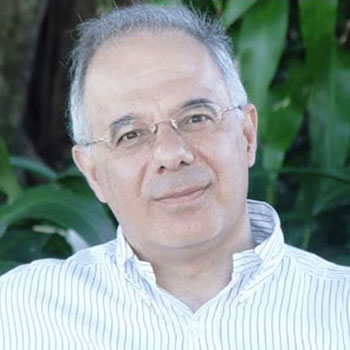Michael P. Papazoglou
6th Wednesday. 11.00 - 12.30 - Place: Europa Room
Session chair: Juan Hernández, University of Extremadura, SpainTitle:
Demystifying Smart Data & Smart Industrial-Strength Applications: Solving Problems & Creating Opportunities
Brief:
Smart Data emphasize the latent value inherent in widely dispersed and unconnected data sources. The decisive criterion here is not necessarily the amount of data available, but smart content techniques that promote not only the collection and accumulation of related data, but also its context, and understanding. This requires discovering associations between the data, prioritizing results, finding useful insights, discovering patterns and trends within the data to reveal a wider picture that is more relevant to the problem in hand and react to them. Smart Industrial-Strength Applications are a new generation of software applications that combine the benefits of smart data and advanced analytics to help organisations manage their resources (including humans), data, processes and systems more efficiently.Smart Data and Application innovations promise to bring greater speed and efficiency to industries as diverse as smart agriculture, smart cities, smart tourism, and smart health care delivery where they provide meaningful insights to decision makers and help them solve complex problems. They hold the promise of stronger economic growth, better and more job creation and rising living standards.
This talk will focus on the role, characteristics, potential of smart data and applications for diverse domains, and their enabling technologies. To illustrate the potential of smart data and applications, the talk will draw on examples that highlight the interplay of medical and technical aspects of smart healthcare applications. Smart healthcare involves deploying computing, information, service, sensor and visualisation technologies to aid in preventing disease, improving the quality of care and lowering overall cost. The talk will also examine the design and deployment requirements, particularly for point-of-care medical applications, which emerge from the interplay of the actual clinical situation and the novelty of the smart healthcare application.
Short bio:

Prof. Michael Papazoglou is a highly acclaimed academic with noteworthy experience in areas of education, research and leadership pertaining to computer science, information systems, service-engineering, cloud computing, and digital manufacturing. He holds the Chair of Computer Science and is the executive director of European Research Institute in Service Science (ERISS) at Tilburg University. He is noted as one of the original promulgators of ‘service-oriented computing’ and was the scientific director of the acclaimed EU Network of Excellence in Software Systems and Services (S-CUBE). He is renowned for establishing local ‘pockets of research excellence’ in service science and engineering in several European countries, China, Australia and the Middle East. Papazoglou is an author of the most highly cited papers in the area of service engineering and Web services worldwide with a record of publishing 23 (authored and edited) books, and over 200 prestigious peer-refereed papers along with approx. 17,500 citations (H-index factor 52). He is a distinguished/honorary professor with an exemplary teaching and R&D record at 11 universities around the globe. He has delivered over 35 keynote addresses since 2000 and chaired 12 prestigious international peer refereed conferences. He is the founder and editor-in-charge of the MIT Press book series on Information Systems as well as the founder and editor-in-charge of the Springer-Verlag book series on Service Science. His expertise is in the areas of Distributed Systems, Service Oriented Computing, Cloud Computing, Data Engineering and Federated Databases, IoT, Software Engineering, Model Driven Architectures, and Smart Applications, such as Smart Cities and Smart Manufacturing.